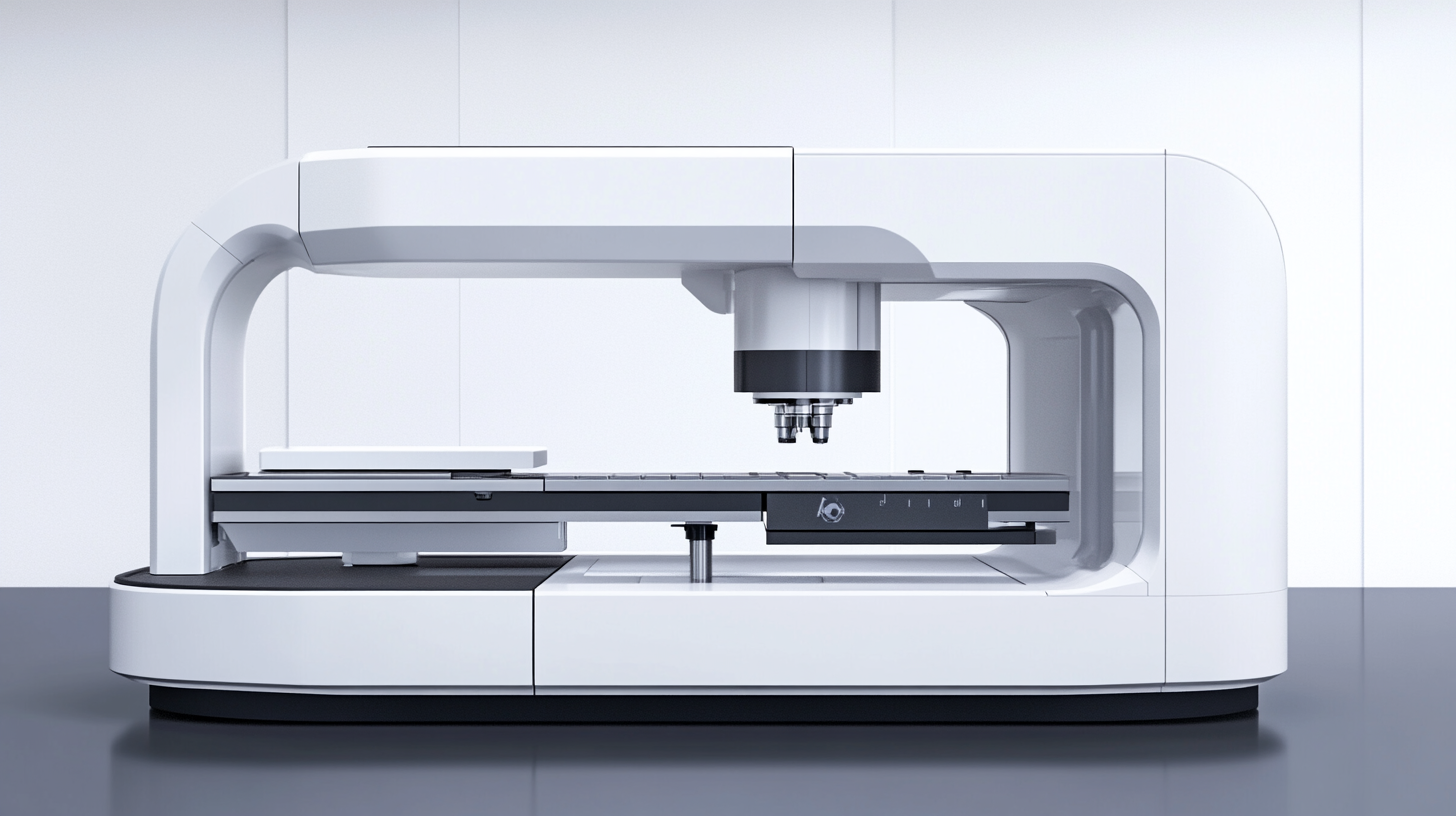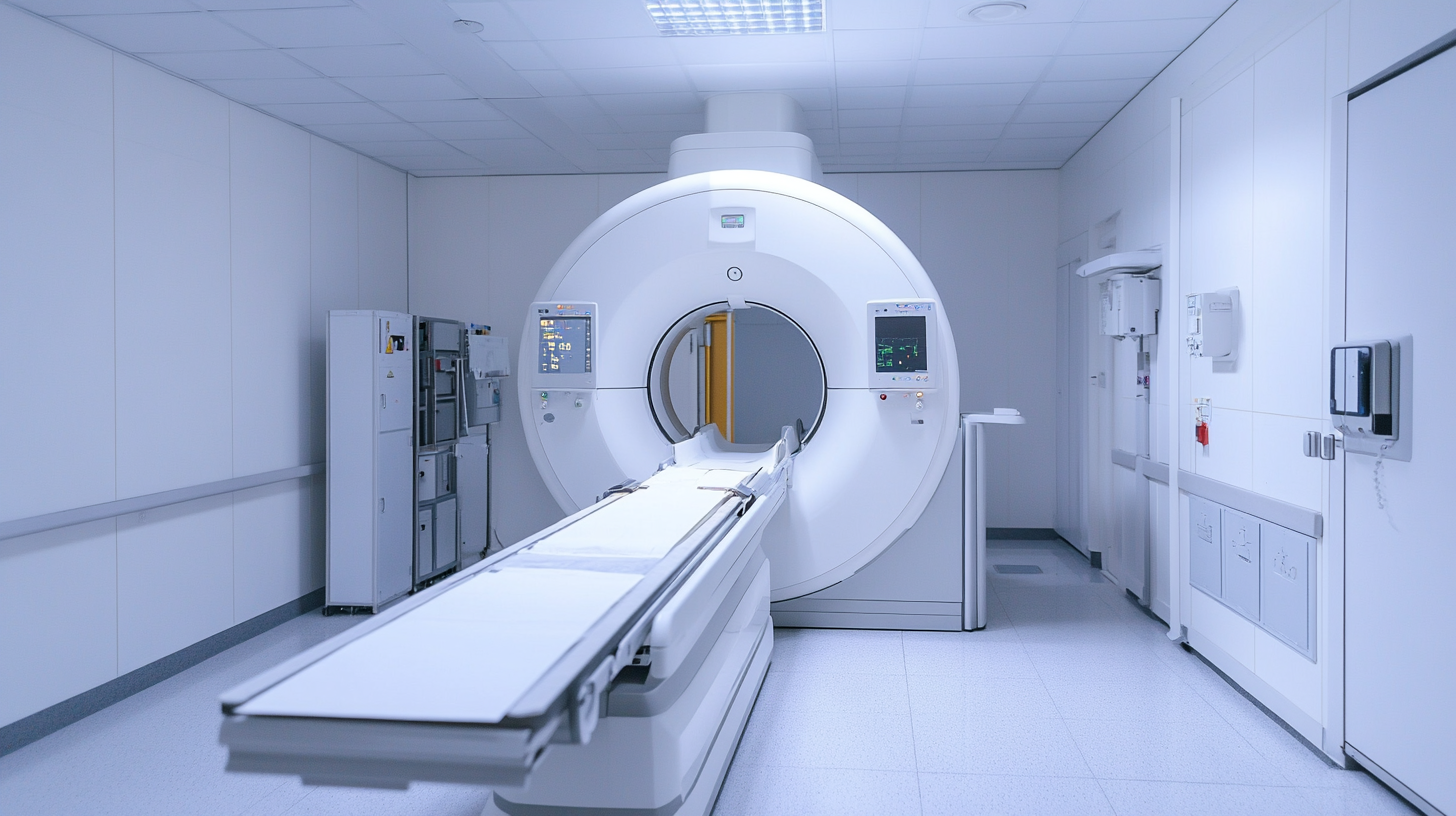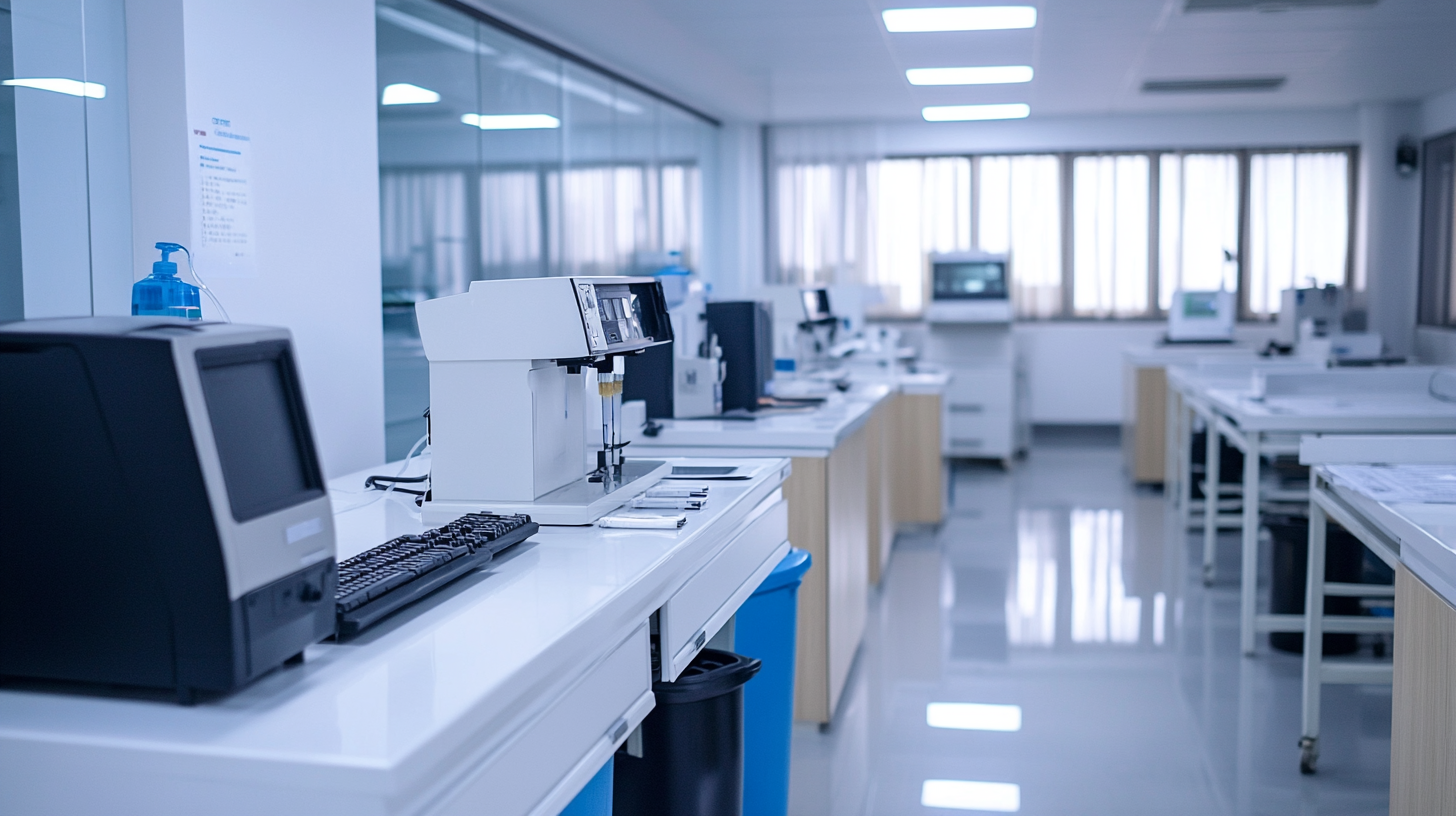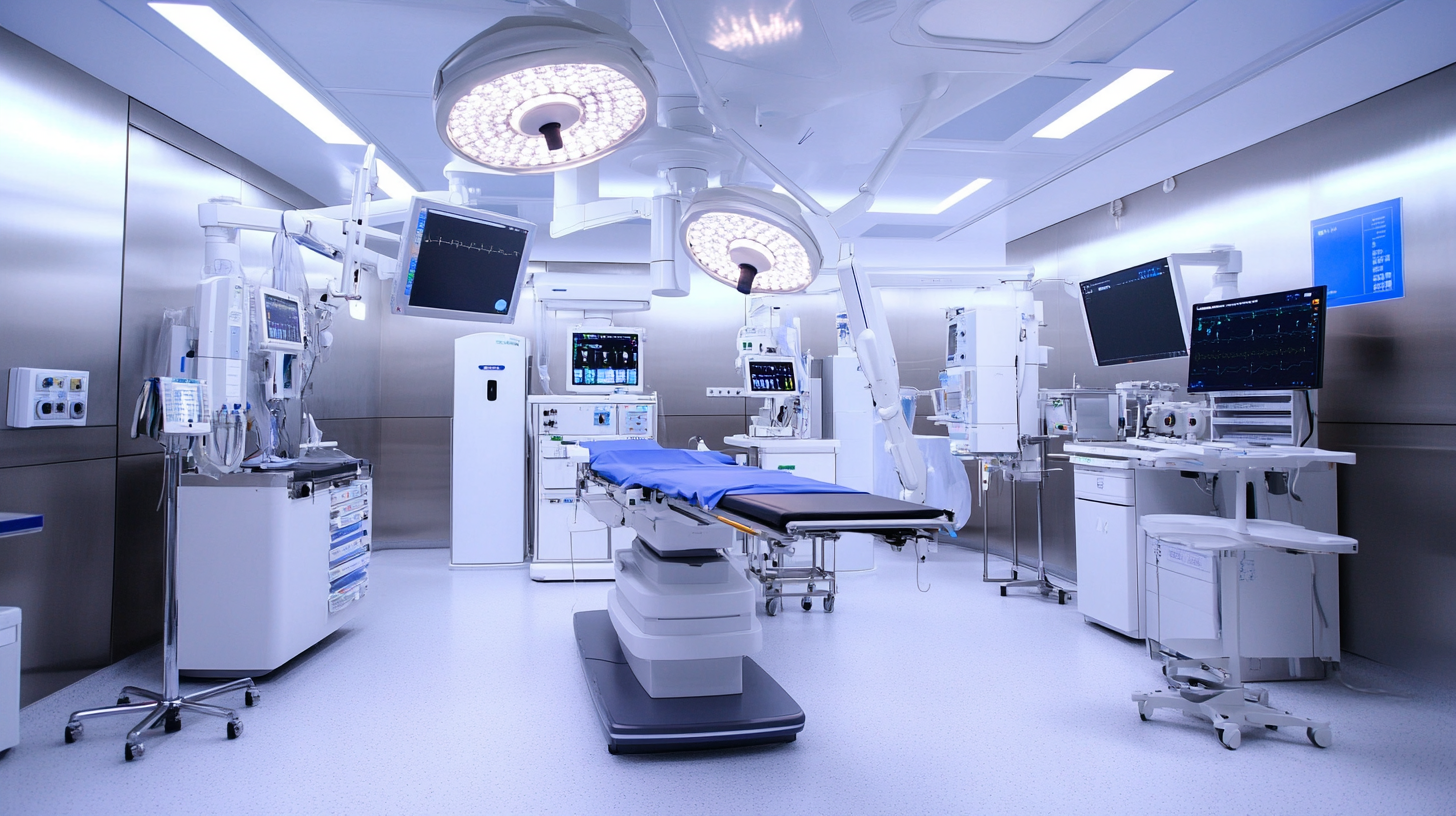Advantages of Medical Device Testing for Global Buyers
In today's rapidly evolving healthcare landscape, the importance of Medical Device Testing cannot be overstated. With the global market for medical devices projected to reach over $600 billion by 2024, ensuring the safety, quality, and efficacy of these products has become paramount for manufacturers and stakeholders alike. According to a report by Fortune Business Insights, stringent regulatory requirements and increasing patient safety concerns are driving the demand for comprehensive testing solutions. As a result, global buyers are increasingly seeking reliable testing services to mitigate risks and enhance product performance before introducing new devices to the market.
Furthermore, the rise in complex medical technologies and the aging population are contributing to the growing need for rigorous Medical Device Testing. A study by ResearchAndMarkets predicts that the medical device testing market will see a compound annual growth rate (CAGR) of 7.2% from 2021 to 2028. This trend underscores the necessity for global buyers to engage with specialized testing laboratories that can offer not only compliance with international standards but also innovative testing methodologies that adapt to the unique challenges presented by today's advanced medical devices. With these considerations in mind, understanding the advantages of Medical Device Testing becomes crucial for companies aiming to thrive in this competitive industry.

Importance of Ensuring Quality and Safety in Medical Devices
Ensuring the quality and safety of medical devices is of paramount importance for global buyers who wish to provide effective and reliable healthcare solutions. In an industry where patients' lives are at stake, thorough testing becomes essential. Medical devices, ranging from surgical instruments to diagnostic equipment, must meet rigorous standards to ensure they perform effectively without posing risks to users or patients. Implementing systematic testing protocols can help identify potential issues early in the development process, ultimately safeguarding both the reputation of the manufacturers and the health of the end-users. Additionally, regulatory compliance is a critical factor in the medical device industry. Different countries have varying standards and requirements that products must meet before they can be marketed. For global buyers, understanding and navigating these regulations can be daunting. Conducting comprehensive medical device testing not only enhances compliance with local and international standards but also streamlines the approval process, making it easier for manufacturers to enter new markets. This proactive approach fosters trust and confidence among buyers, as they are assured that the products they procure have undergone stringent testing and meet the necessary safety and quality benchmarks. Moreover, the emphasis on quality and safety in medical devices can lead to innovation within the industry. As manufacturers strive to meet high testing standards, they are often encouraged to invest in research and development to improve their products. This drive for excellence not only enhances the devices themselves but also contributes to the overall progress of medical technology. For global buyers, partnering with manufacturers that prioritize rigorous testing processes ensures they are providing their clients with the best possible solutions in the ever-evolving field of healthcare.

Enhancing Market Access Through Comprehensive Testing
In today’s rapidly evolving healthcare landscape, ensuring the safety and efficacy of medical devices is paramount for global buyers. Comprehensive testing plays a critical role in enhancing market access, serving as a bridge between innovation and regulatory approval. When manufacturers invest in thorough testing, they not only comply with international standards but also instill confidence in stakeholders, from regulators to healthcare providers.
Comprehensive testing allows for the identification of potential issues before products reach the market. By adhering to stringent safety protocols and performance evaluations, medical device companies can address concerns proactively. This not only minimizes the risk of recalls and litigation but also strengthens a company's reputation. For global buyers, a product backed by rigorous testing signifies reliability and quality, ultimately influencing purchasing decisions.
Moreover, comprehensive testing fosters international collaboration and opens doors to diverse markets. Different regions have varying regulatory requirements, and thorough pre-market evaluations ensure that devices meet these criteria. This adaptability not only facilitates smoother entry into new markets but also encourages partnerships with local stakeholders. As a result, companies that prioritize comprehensive testing position themselves as industry leaders, driving innovation while expanding their global footprint.

Reducing Liability Risks for Global Buyers
Medical device testing plays a crucial role in the healthcare industry, particularly for global buyers who seek to minimize liability risks associated with product failures. In an increasingly interconnected market, the repercussions of a defective medical device can be significant, not only financially but also in terms of patient safety and brand reputation. By conducting thorough testing, manufacturers can identify potential flaws before products reach the market, ensuring higher quality and compliance with international standards.
One of the most pressing concerns for global buyers is the litigious nature of the healthcare industry. A single incident involving a faulty medical device can lead to costly lawsuits and regulatory penalties. Comprehensive testing helps to mitigate these risks by providing evidence of a device’s safety and efficacy. Through rigorous assessments, including biocompatibility and durability tests, companies can demonstrate their commitment to patient safety, thereby building trust with both consumers and regulatory bodies.
Moreover, investing in medical device testing can enhance a company’s global competitiveness. Buyers are increasingly looking for partners who prioritize quality assurance, as this can significantly impact their purchasing decisions. By ensuring that medical devices undergo meticulous testing, manufacturers can position themselves as reliable collaborators in the supply chain. This proactive approach not only reduces liability risks but also fosters long-term relationships built on trust and accountability.

Streamlining Compliance with International Regulations
Navigating the complex landscape of international regulations is a critical aspect for global buyers of medical devices. Compliance is not merely a legal requirement but a standard that ensures safety and efficacy for end users. By conducting thorough medical device testing, manufacturers can significantly streamline this compliance process. This proactive approach not only saves time but also minimizes the risk of regulatory setbacks that can be costly and time-consuming.
One of the primary advantages of medical device testing is the ability to identify potential issues early in the product development cycle. Rigorous testing allows companies to meet the specific requirements of various regions, whether it’s the FDA in the United States or CE marking in Europe. This alignment with international regulations helps in building trust with stakeholders and customers, as it demonstrates a commitment to quality and safety. Additionally, passing these tests can expedite the approval process, ultimately leading to faster market entry.
Moreover, medical device testing fosters better communication between manufacturers and regulatory bodies. A well-documented testing process can serve as a valuable reference during audits and inspections. As buyers increasingly seek devices that comply with global standards, manufacturers who prioritize medical device testing are likely to stand out in the competitive landscape. This not only enhances marketability but also positions companies as leaders in compliance and innovation within the medical device industry.
Improving Product Reputation and Consumer Trust
In today's competitive landscape, medical device testing plays a crucial role in enhancing product reputation and bolstering consumer trust. According to a report by Grand View Research, the global medical device testing market is projected to reach USD 17.7 billion by 2027, signaling a growing recognition of the importance of comprehensive testing protocols. Rigorous testing ensures that devices meet safety and efficacy standards, essential for gaining regulatory approval and acceptance in various markets.
The relationship between product reputation and consumer trust cannot be overstated. A survey conducted by the FDA showed that nearly 60% of patients expressed reluctance to use a medical device after learning about safety concerns related to similar products. By investing in thorough testing, manufacturers not only address potential safety issues but also communicate a commitment to quality, effectively dispelling doubts in consumer minds. When buyers are confident that a device has undergone extensive testing, they are more likely to embrace it, thus enhancing brand loyalty and reputation.
Moreover, the impact of quality testing extends beyond just compliance; it can also influence product performance. According to a report by the Medical Device Innovation Consortium (MDIC), devices that undergo rigorous pre-market testing have been shown to reduce post-market recalls by as much as 30%. This reduction not only saves companies significant costs associated with recalls but also reinforces consumer confidence in their products. As buyers increasingly prioritize safety and reliability, investing in medical device testing will be a strategic move to fortify trust and reputation in the market.

